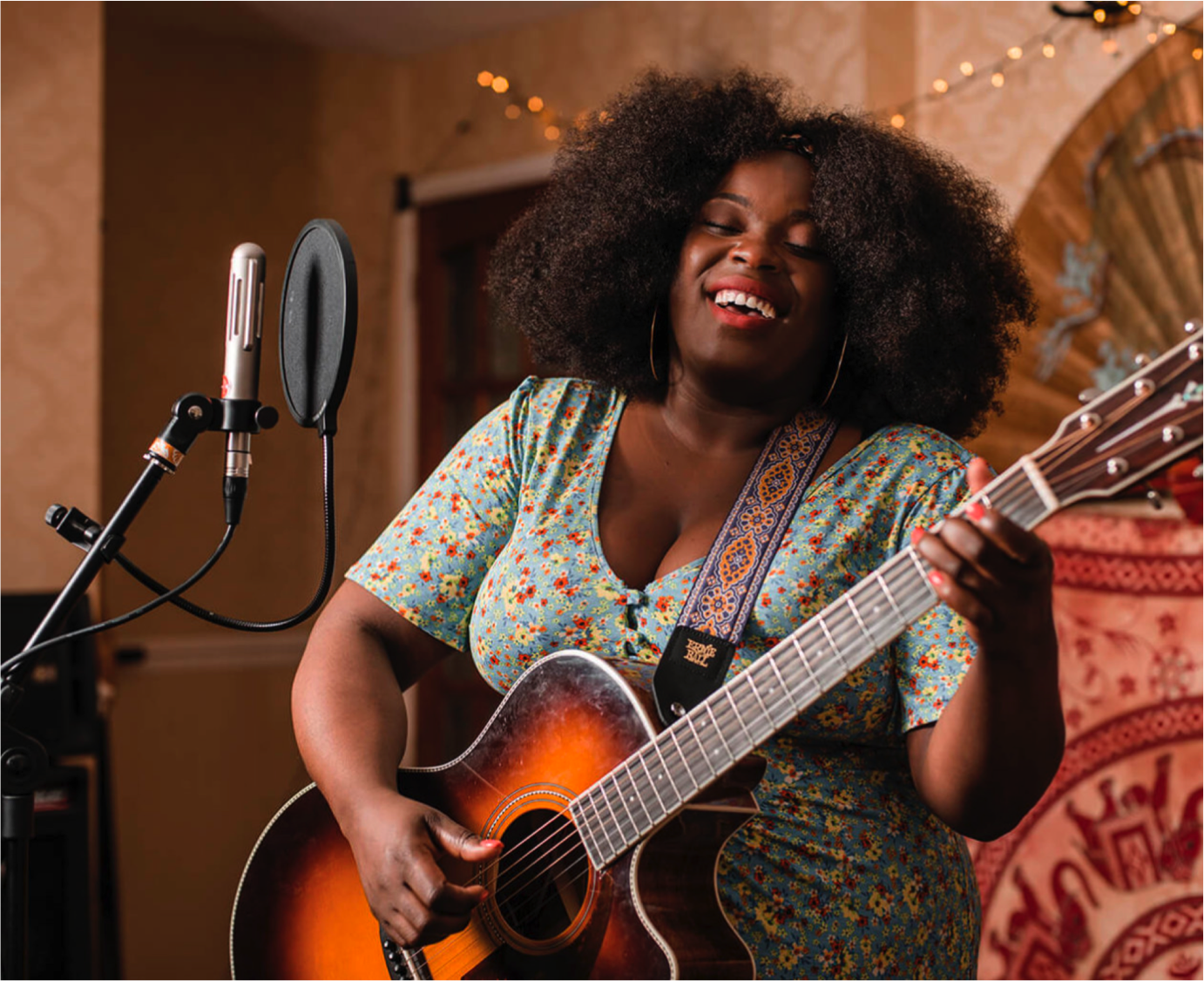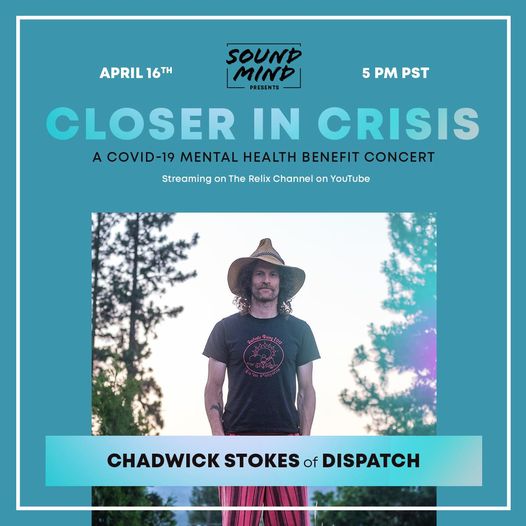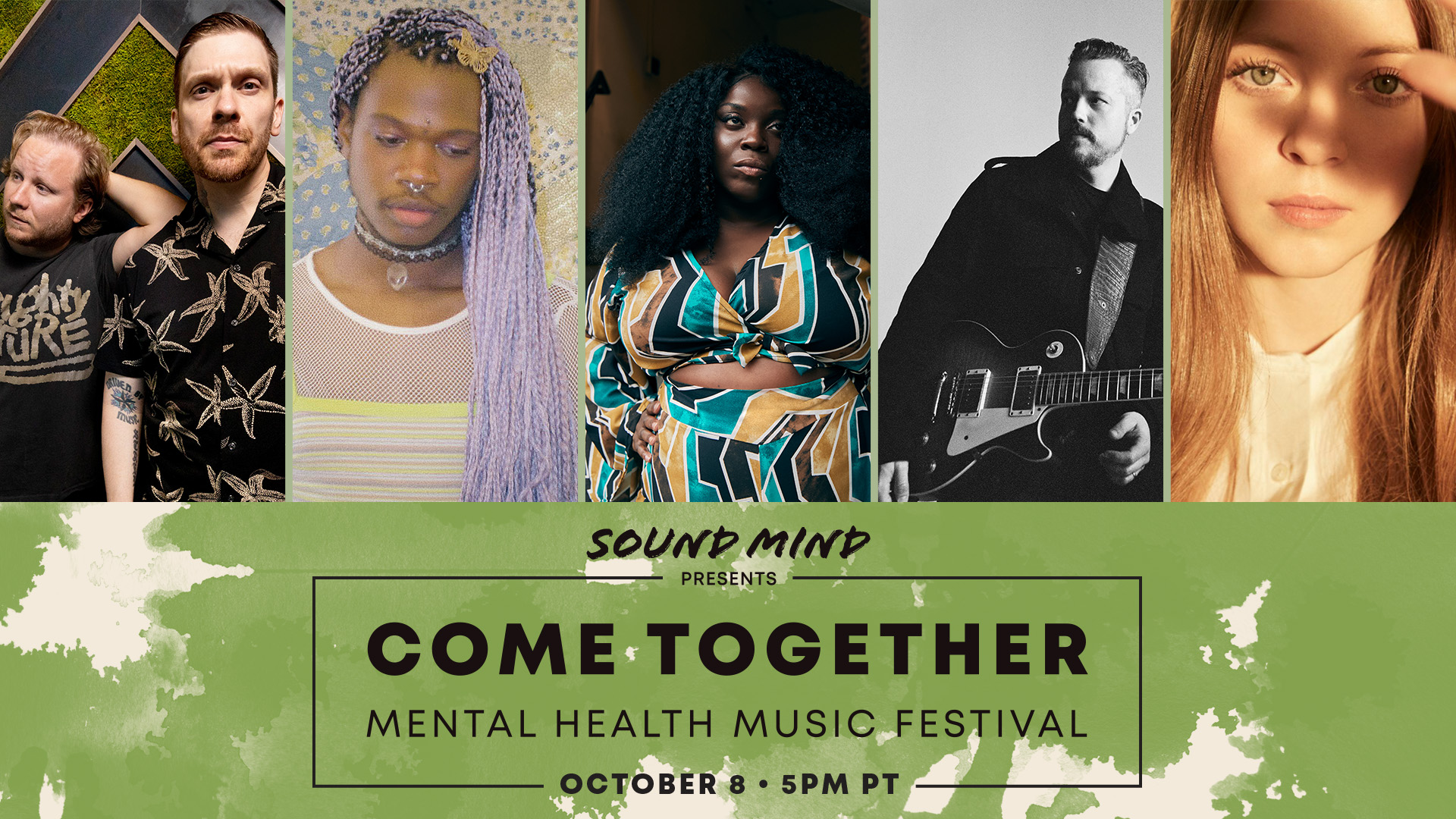Musicians Normalizing Mental Health Issues
Since the pandemic, the need for youth to feel comfortable and equipped to seek mental health support is greater than ever. The CDC reported that since the pandemic one in four young adults has contemplated suicide, and over 75% report adverse mental health conditions. If unaddressed, experts anticipate that negative mental health symptoms appearing in early years could spiral into more catastrophic effects in the years to come.
Sound Mind Live is uniquely positioned to address this crisis among youth. Sound Mind Live was founded in 2019 with a mission to end the stigma surrounding mental health conditions by fostering community and open dialogue through the power of music. With 73% of musicians reporting symptoms of anxiety, depression and other mental health conditions, musicians are uniquely positioned to be influencers driving change for youth. Music holds the unparalleled ability to connect to people’s hearts and catalyze change – it strengthens community, builds empathy, and most importantly, inspires action. Sound Mind Live brings together influential musicians affected by mental health issues with leading mental health organizations to build empathy and increase access to and awareness of critical mental health resources.
During its first year of operation, Sound Mind Live focused on live events and online media advocacy campaigns surrounding these events. In 2020 Sound Mind Live pivoted to digital format, producing virtual livestream events and digital content. Just three weeks after pandemic quarantines began in March, the organization produced one of the first large-scale virtual festivals streamed during this time, “Closer in Crisis,” a three-hour virtual mental health music festival. The online event was attended by over 18,000 people around the country and reached two million people through the surrounding advocacy campaign.
Graham Mutough, a young artist from Los Angeles, said of one of these events “Sound Mind Live’s ‘Come Together’ Festival really moved me. I had been struggling and had been putting off getting therapy. That night, I was inspired to promise myself to sort things out first thing the next day. I have found a good counselor and it’s made a world of difference.” Following the positive response to the online content and to increase engagement among youth during the mental health crisis surrounding the pandemic, Sound Mind Live launched the Artist Ambassador Crisis Response initiative (AACR). AACR is tailored for the new post-COVID-19 world by developing broadly distributed digital content.
In partnership with leading organizations across mental health and entertainment, including National Alliance on Mental Illness and Billboard, AACR leverages artists’ wide and engaged fan base to educate the public on vetted mental health messaging targeted to youth, moving them past stigma to take action on self-care and support. Contact-based approaches (i.e., hearing from people with lived experience), including video and podcasts, have proven to be the most effective intervention for changing mental health attitudes. AACR reaches an otherwise passive audience via musical influencers who encourage them to take actions toward seeking support. By working with artists from diverse genres and backgrounds, AACR represents the unique mental health experiences of these communities and elevates pathways and resources toward healing and support.
Mike Heyliger, a 25-year music industry veteran and Billboard “Pride Power Player” honoree, says of Sound Mind Live’s digital programming, “For the people who watch these interviews, or tune into Sound Mind Live’s other programming, it awakens them to the fact that mental illness is a huge issue; it needs to be normalized and people need to get help. After listening to their favorite musician talk about being depressed or having anxiety, it makes it easier for someone sitting at home to go get their own issues checked out.”




